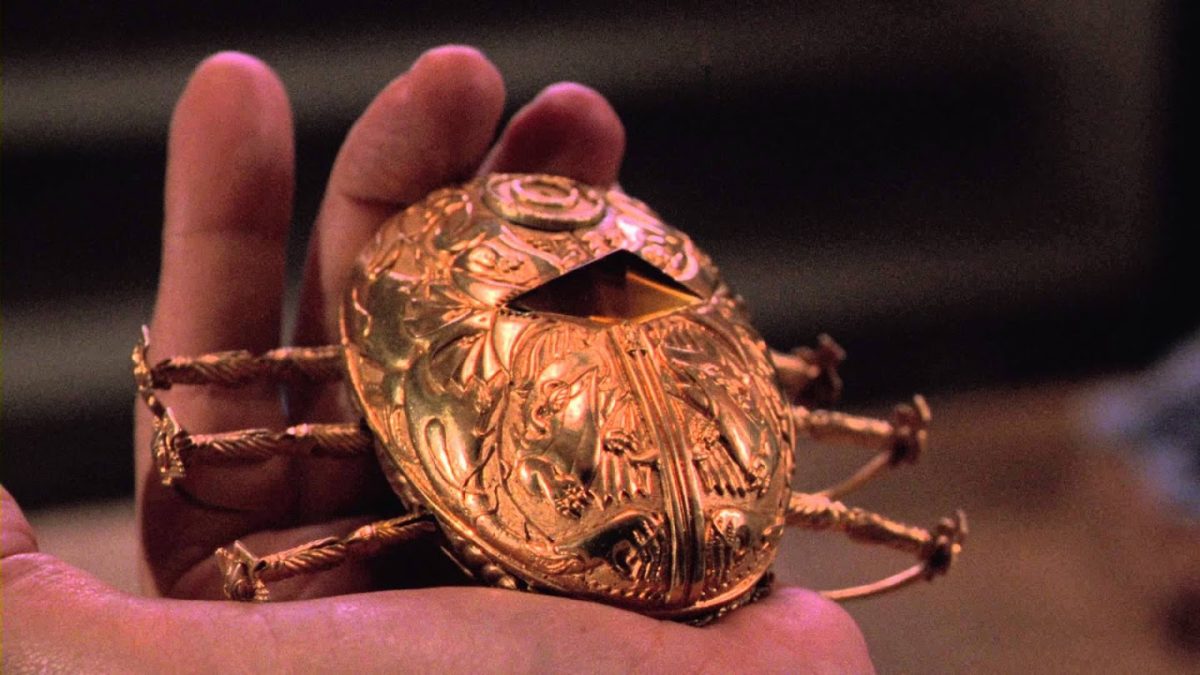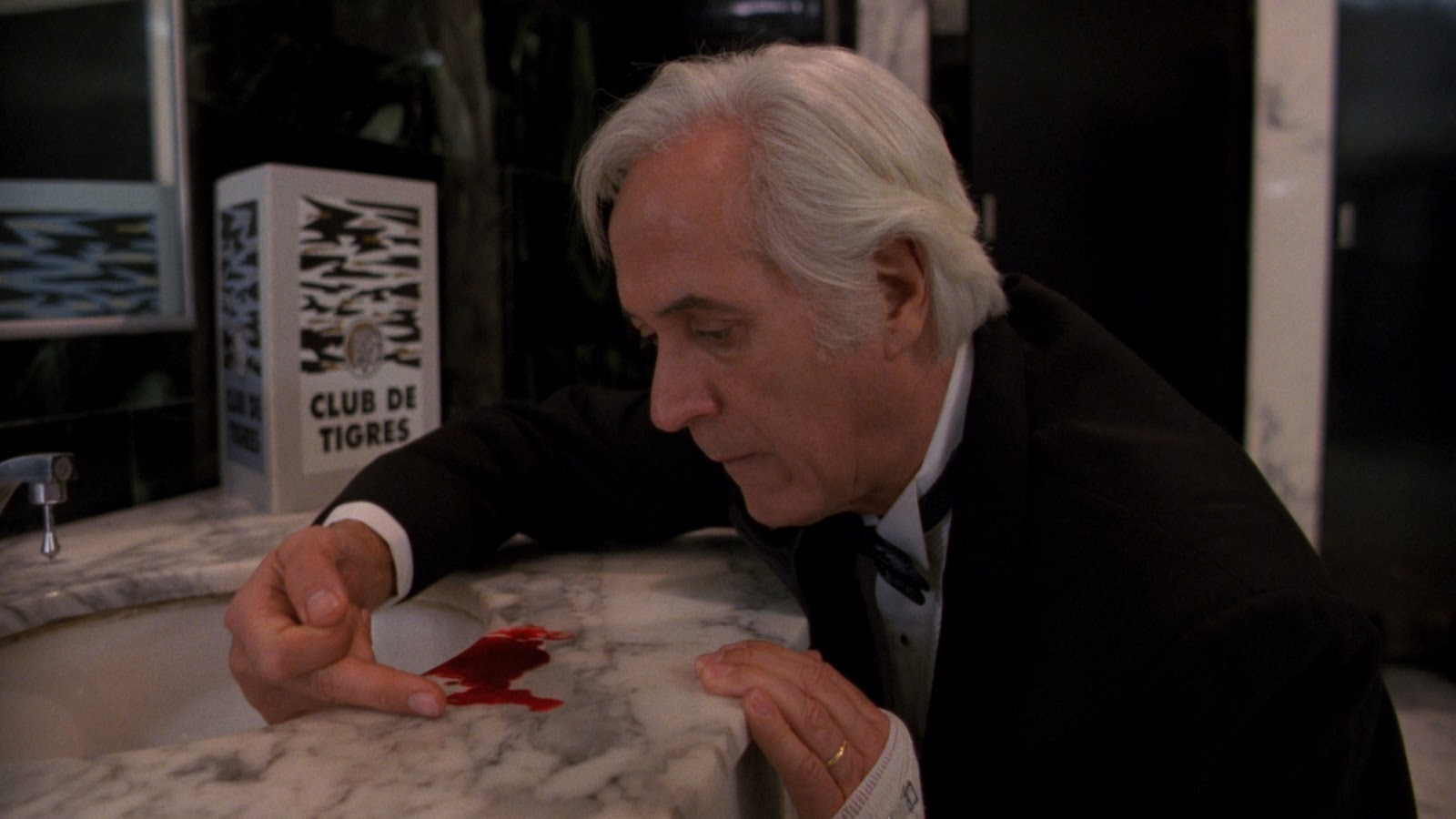Of all the holidays celebrated worldwide, no single day is loved by the Substream staff more than Halloween. With October’s arrival, the time has finally come to begin rolling out a slew of special features we have prepared in celebration of our favorite day.
31 Days Of Halloween is a recurring column that will run throughout the month of October. The goal of this series is to supply every Substream reader with a daily horror (or Halloween-themed) movie recommendation that is guaranteed to amplify your All Hallows’ Eve festivities. We’ll be watching every film the day it’s featured, and we hope you will follow along at home. Reader, beware, you’re in for a… spooky good time!

Day 31: Cronos (1993)
Guillermo del Toro is not what you would call your standard horror director. Sure, his films feature a plethora of creative creature designs and their fair share of horrifying and disturbing imagery, but often those two aspects of his works are not intrinsically interconnected. More often than not, del Toro’s monsters are actually misunderstood vessels of benevolence, and the real horrors come at the hands of humans who, perhaps unsurprisingly, have the greatest capacity for inhumanity. Nowhere is this more evident in del Toro’s Spanish-language work, and 1993’s Cronos is where it all began, weaving a vampire narrative like no other that would act as a forebear for the future of del Toro’s influence.
Cronos is the story of Jesús Gris (Federico Luppi, who tragically passed eleven days ago), an elderly antique dealer, who comes across a mysterious artifact with his young granddaughter Aurora (Tamara Shanath). The device is fashioned like a golden scarab, and when Jesús examines the object it digs its mechanical claws into his flesh and injects him with an unknown substance. Thus begins a vampiric transformation wherein Jesús begins to crave human blood, but in return he is rewarded with a more youthful and energetic appearance. However, a rich businessman, Dieter de la Guardia (Claudio Brook), is also aware of the device’s alchemical properties and wishes to harness the device’s power to reverse his terminal illness.
What’s remarkable about Jesús is that he really is a man torn between what he once was and the monster he is becoming. He’s a loving husband and grandfather, but his relationship with the Cronos device is like that of an addict, wherein he betrays the trust of his concerned granddaughter to pursue a new fix at the hand of the biomechanical trinket. He never actively harms anyone, never practices violence except in self-defense, and only ever partakes of blood that has already been spilt, but his pursuit of the vitality and power given by his newfound obsession alienates him from his family to the point of his own mortal demise. This gives way to a monstrous form of immortality that decays his human flesh in favor of a hard carapace, but the loving man underneath is ever present, for he is a victim of an addiction that he never asked for in the first place.
No, despite being the film’s monster, Jesús is an empathetic lead; it is Dieter de la Guardia’s nephew, Angel (Ron Perlman) who is the despicable and horrifying component of this tale. Angel cares for his uncle in his dying days, but whenever Dieter is not around, Angel is a bitter and spiteful fountain of vulgarity, resenting his familial duties and merely waiting for the day that Dieter kicks the bucket and he may inherit the old man’s vast fortune. However, seeing Jesús as a threat to his uncle’s mortality, Angel has no qualms about killing the old man so that the secrets of immortality may die with him. He then in turn finishes the job when Jesús and Aurora end up mortally wounding Dieter in self-defense and tries to kill them both for their role as witnesses to Jesús’s “survival.” Jesús may be a vampiric presence, but Angel befits his name as having fallen from grace, a monster in action if not appearance.
Ultimately, Cronos is a monster movie that doesn’t actually carry the intent to scare its audience in a conventional manner. The monster is merely a transformed person with no intent to harm, a victim of his circumstances, and while he has a horrific fascination with human blood, he never crosses the boundaries of hurting anyone. The real monster of Cronos is the normal man who chooses to be one, driven by materialistic and earthly passions of greed and selfishness. That sort of horror is a lot more introspective and messier to dissect, but much like other films in Guillermo del Toro’s oeuvre, Cronos is all the more existentially horrifying the longer it sits with you.














